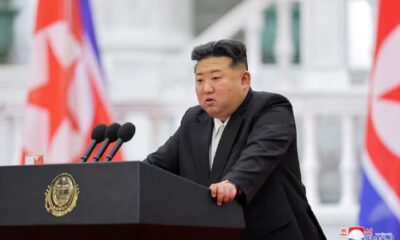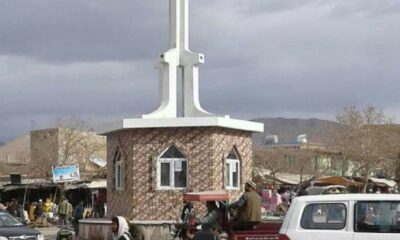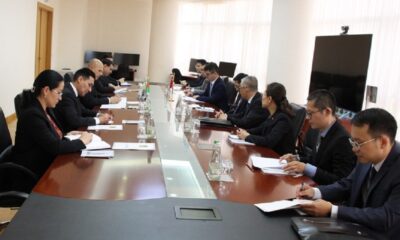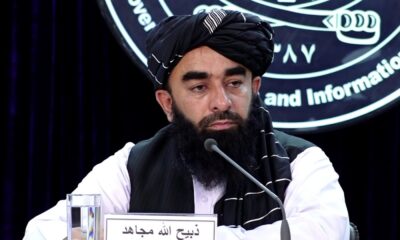Latest News
Time for both sides to stop fighting and make a deal, say foreign stakeholders
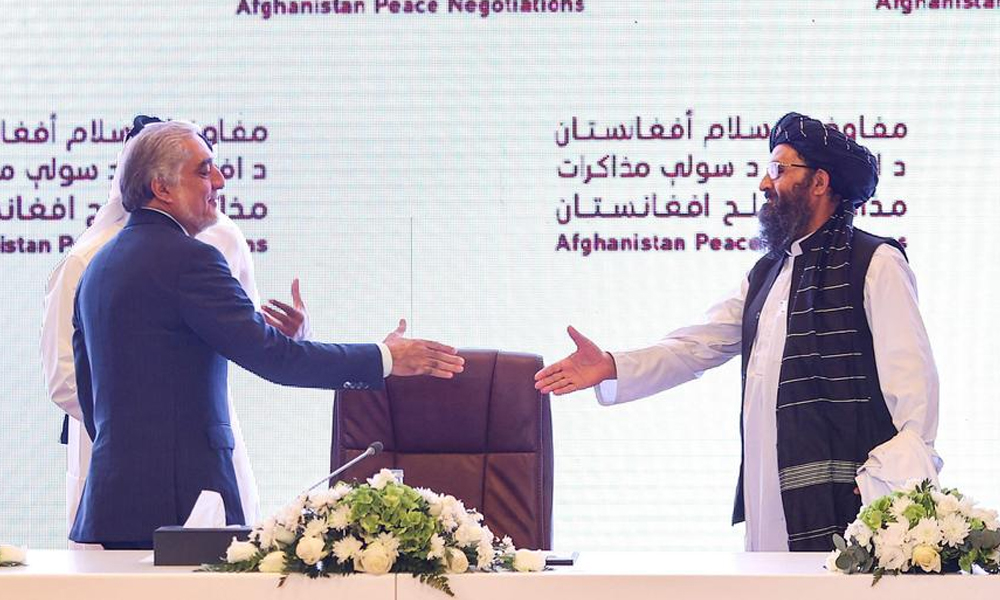
US Special Representative for Afghanistan Reconciliation Zalmay Khalilzad and UNAMA both issued a communique on Saturday calling on both sides to the conflict to stop the fighting and start making progress at the peace talks tables.
The communique comes after a meeting on Thursday in Rome between the EU, NATO, the UK, France, Germany, Italy, Norway, and the US, where they discussed the situation in Afghanistan and the developments in peace negotiations after last week’s high-level talks in Doha.
The communique stated the group of countries and organizations are committed to a strong partnership with Afghanistan and will be closely monitoring ongoing developments during the new phase of transition as foreign troops withdraw.
They said they “are deeply concerned about the high levels of violence, the Taliban’s military offensive, and the number of reported serious human rights abuses and violations alleged in communities most affected by the ongoing armed conflict across the country”.
“We call on all parties to reduce violence and protect civilians, respecting their obligations under international humanitarian law.
“We call on the Taliban to end their military offensive, and on both the Islamic Republic and the Taliban to engage meaningfully in the peace process.
“We reiterate the urgency of reaching a ceasefire to ensure the success of negotiations, and we acknowledge the sacrifices of the Afghan security forces,” the communique read.
The group also stated that they reaffirm there is no military solution to the conflict in Afghanistan and that it will not support any government in Afghanistan imposed through military force.
In addition they said that five elements of a final political settlement are critical to continued support. These are: 1) inclusive governance; 2) the right to elect political leaders; 3) protections for human rights, including rights of women, youth and minorities; 4) commitments on counter-terrorism, including to ensure that Afghanistan does not again serve as a safe haven for terrorists; and 5) adherence to international law, including international humanitarian law.
“We emphasize that international support to any future government will depend, at least in part, on adherence to these five elements,” the communique read.
“We also reiterate that future assistance to Afghanistan is dependent on good governance and a commitment to the rule of law and human rights, including preservation of the gains made by women and girls over the past two decades, as well as the government taking meaningful steps to tackle corruption and to meeting commitments made at the November 2020 Geneva Conference.”
The group also welcomed the talks held in Doha last week between senior leaders of the Afghan Republic and the Taliban and stated: “We further welcome the declared commitment of the two sides to accelerate negotiations toward an inclusive political settlement and to meet again in the near future. We believe future meetings should focus on core issues that will be fundamental to reaching an inclusive political settlement.”
They stated however that they are aware that reaching a final political settlement, including on the Constitution, will likely take time but urged both sides to agree to a permanent and comprehensive ceasefire, to foundational principles for the future Afghan State, and on details of transitional governing arrangements.
The group also called on both parties to negotiate in good faith in order to reach a just and durable political settlement.
The group also commended Qatar for bringing the parties together and for its overall contribution to the peace process.
In addition, the group said they encourage Afghanistan’s neighbors to intensify their support to the Afghan people and to contribute to a lasting peace settlement and economic development in the interests of all.
“We also call upon all parties to ensure the safety of foreign embassies and other diplomatic missions, multilateral agencies, media representatives, airports and non-governmental organizations and their Afghan and international staff.”
We particularly appreciate Turkey’s readiness and commitment to assist with airport security as needed.
Latest News
Eleven people shot dead at shrine in Baghlan

Eleven people have been killed in a shooting at a shrine in Afghanistan’s northern Baghlan province, local sources said on Friday.
The incident took place at 9 pm on Thursday at the shrine of Sayed Padsha Jan in Shahr-e-Kuhna of Nahrin district.
A local resident said the dead were residents of Nahrin district and wanted to spend the night at the shrine.
Asadullah Mustafa Hashemi, the provincial information and culture director, confirmed the incident but did not provide details on how it happened or the number of casualties.
Provincial police spokesman said they had not received any information about the incident yet.
Latest News
Chinese, Turkmen officials meet to discuss Afghanistan
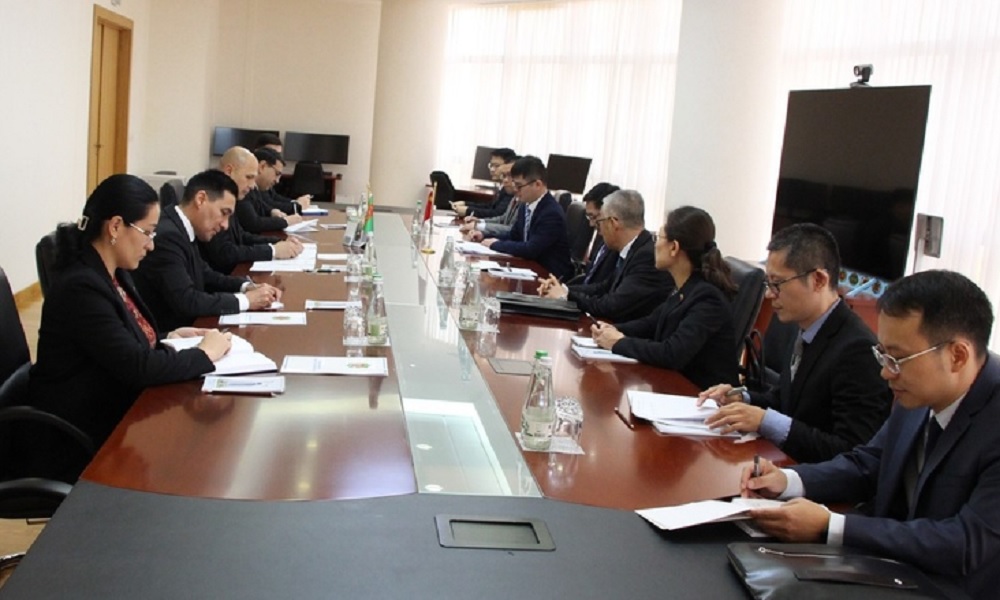
Deputy Minister of Foreign Affairs of Turkmenistan Serdar Muhammetdurdiyev on Thursday met with Chinese special envoy for Afghanistan, Yue Xiaoyong, the Foreign Ministry of Turkmenistan announced.
During the meeting, the sides discussed priority vectors of strategic interstate cooperation built on a long-term, mutually beneficial basis, as well as exchanged views on the implementation of previously reached agreements.
It was noted that personal contacts between the leaders of the two countries play a key role in intensifying the interstate dialogue, which give a strong impulse to further development and expansion of Turkmen-Chinese ties.
It was emphasized that Turkmenistan considers multilateral international platforms for maintaining stability in Afghanistan as an important factor in promoting sustainable improvement of socio-economic state of the neighboring country. The sides exchanged views on the preparations to the 5th meeting of Foreign Ministers of Afghanistan's Neighboring States to be held in Turkmenistan.
The interlocutors reaffirmed that Turkmenistan and China will continue to provide all-round support for the economic restoration of Afghanistan.
Latest News
U.S. House approves bill on evacuation of Afghan allies

The U.S. House Of Representatives has passed a legislation on evacuation of Afghans who assisted Americans during the 20-year war in Afghanistan.
“The passage of the CARE Authorization Act of 2024 further underscores the commitment made by the U.S. government to safeguard those who served shoulder-to-shoulder with our personnel during the twenty-year mission in Afghanistan,” Congresswoman Dina Titus said in a statement.
“The State Department has made it clear: There is no deadline for the crucial job of protecting Afghan allies. By authorizing the Coordinator for Afghan Relocation Efforts at the State Department, we can more effectively relocate and resettle those who have qualified to immigrate to the U.S. as a result of their service to this country.”
In 2022 the State Department established a specialized office called the Coordinator for Afghan Relocation Efforts (CARE) to streamline and coordinate the ongoing relocation and resettlement process for eligible Afghans from Afghanistan and Pakistan to the United States.
The CARE Authorization Act of 2024 will formally authorize the CARE office at the State Department for three years and grant important authorities to advance its mission. These include an extension of authorities to enter into personal services contracts as well as measures to streamline the transfer of funds to and from other agencies involved in the Afghan relocation mission.
-

 Sport5 days ago
Sport5 days agoFIFA unveils Innovative Club World Cup Trophy ahead of new tournament in 2025
-
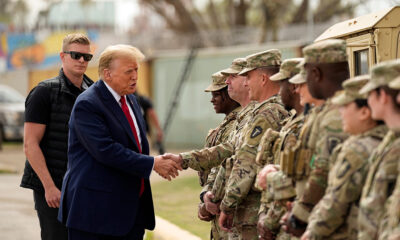
 Latest News5 days ago
Latest News5 days agoTrump team compiling list of military officers responsible for US withdrawal from Afghanistan
-

 Latest News5 days ago
Latest News5 days agoCanada sent 19 failed asylum seekers back to Afghanistan last year
-

 Sport4 days ago
Sport4 days agoAbu Dhabi’s thrilling T10 tournament just days away
-

 World4 days ago
World4 days agoBiden allows Ukraine to use US arms to strike inside Russia
-

 Sport4 days ago
Sport4 days agoAfghanistan beat UAE by 169 runs in U19 tri-series
-

 Business5 days ago
Business5 days agoMullah Baradar inaugurates a blanket factory in Kabul
-

 Latest News3 days ago
Latest News3 days agoTajikistan trumps Afghanistan 3-1 in football friendly


